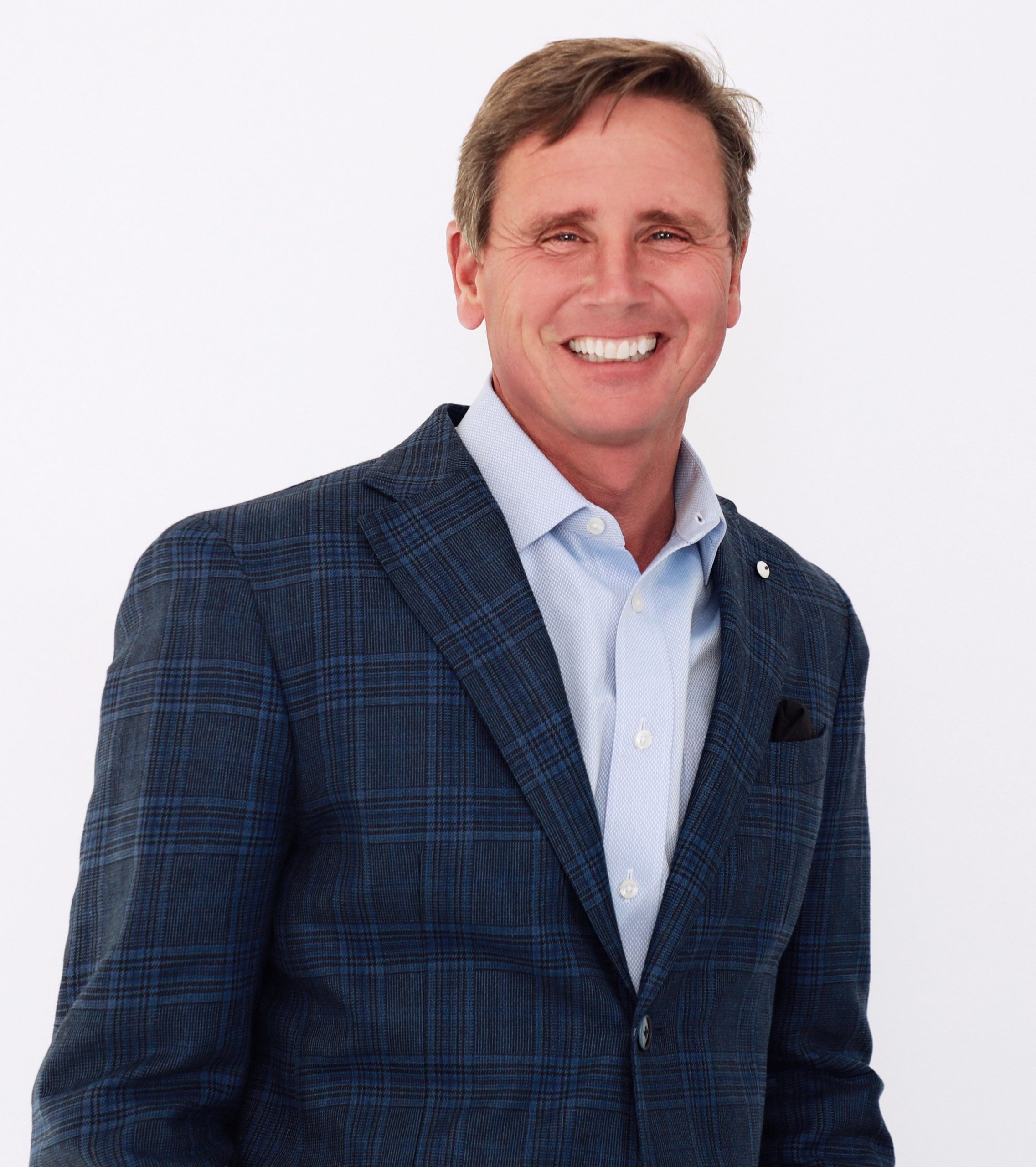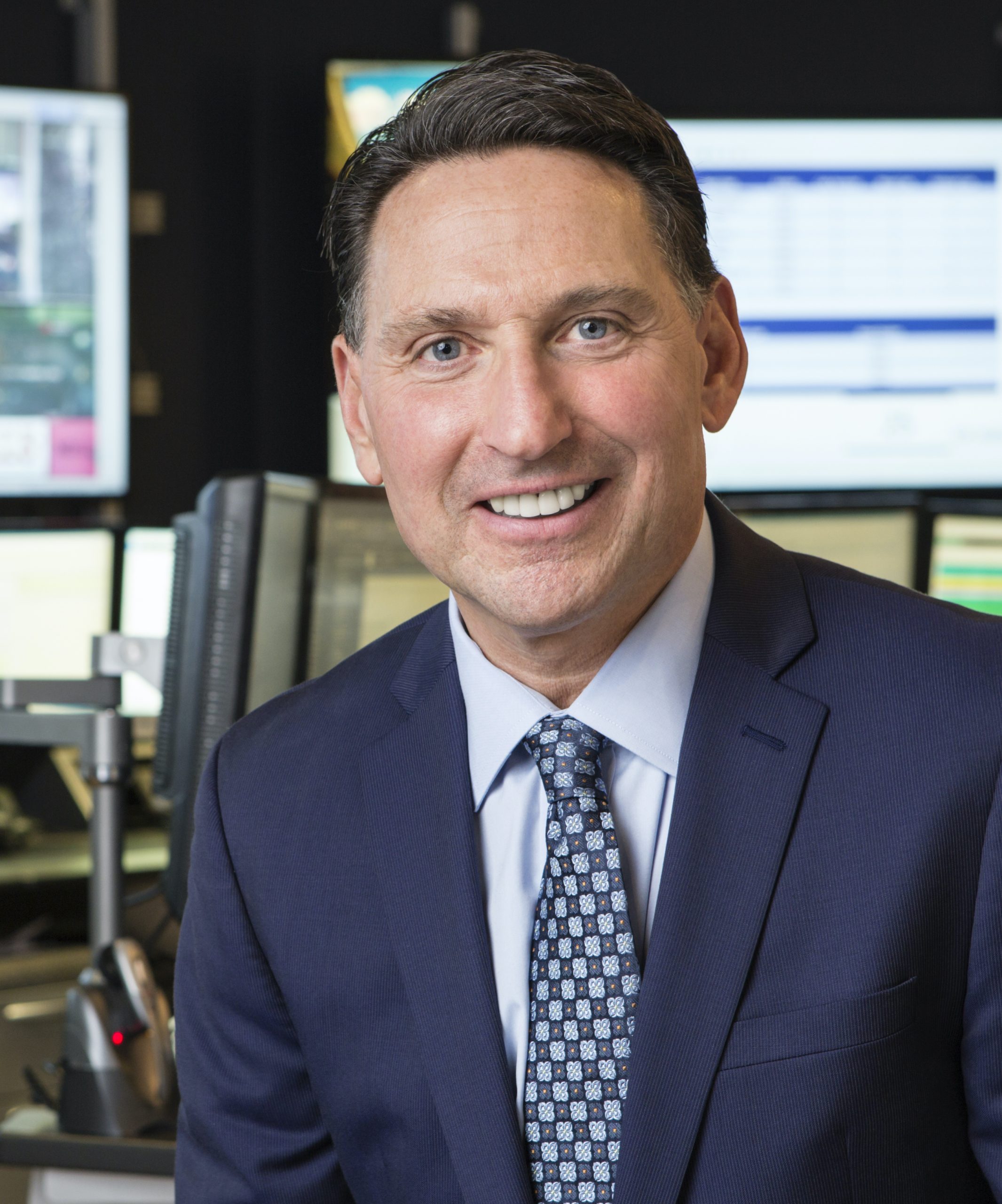SVG Sit-Down: Diversified’s Eric Hutto and Fred D’Alessandro Examine the AV/IT Intersection in Stadiums and Arenas
Hutto takes the reins at the systems integrator
Story Highlights
Changing horses midstream is a challenge; changing them when you’re at the top of the mountain is a high-wire act. That’s where Diversified, pegged at No. 2 on SCN’s 2020 Top 50 list of systems integrators, sits in a multibillion-dollar gaggle of major-league companies that design and install the audio, video, and IT technologies that constitute the media backbone of sports broadcasters and venues. At the $1 billion integration firm — whose portfolio includes Globe Life Field, Met Life Stadium, and Wells Fargo Center — this month, longtime CEO Fred D’Alessandro passed the reins to Eric Hutto, former president/COO of IT services company Unisys.
Sitting down with SVG, Hutto explains the significance of an IT specialist’s leading an AV integrator at a time when AV and IT continue to converge, and D’Alessandro, who is transitioning to the role of executive chairman, provides context.

Diversified’s Eric Hutto: “The biggest thing I think about right now is Draft Kings. I think you’re going to see an ecosystem evolve to where that stuff begins to be integrated into the stadium experience.”
It’s surprising to see someone whose background isn’t deeply in audio, video, and lighting take the lead at a systems-integration company like Diversified. On your LinkedIn page, you have self-described expertise in “turnaround.” You’re coming to a company that’s already at the top of its sector. What does this tell us?
Eric Hutto: Think in terms of transformations instead of turnarounds. I think that every company, no matter how well it’s doing, is keeping its eye on what its next moves are and how it begins to think about how its operating model and structure will scale.
Diversified is already a great company, but now it’s a billion-dollar company that has a lot of still-moving pieces of smaller companies. [Most recently, Diversified acquired North Haven, CT-based HB Communications in 2021 and Indianapolis-based Sensory Technologies in 2020.] What Fred and the board have asked me to do is come in and bring the structure and the ability to scale it, to bring it together as a single core operation and get it prepared for “what does $2 billion look like?” What’s the operating model? How’s the structure working? How complex is it? Things are moving so fast. You just can’t afford to be complacent. You’ve got to always be looking and challenging.
What do you see when you look at the sports sector in general, whether it’s broadcast or live?
EH: I live in Dallas, so I’m next to Jerry World, and we know what that looks like. (Laughs.) I’m new to the industry, but, obviously, I’ve been doing my homework. There’s another $10 billion planned for expenditures in stadiums alone by 2030; that’s eight years. Now, not all that $10 billion will go into AV and IP — all the things that we do — but a significant amount will. They’re thinking about multiple channels of revenue.
How do we compete with an in-home experience vs. a stadium experience, and how do we bring those two together and compete? I think that the value and the growth opportunity for us is to merge those technologies with that experience definition. [Also,] remember everything gets done in the cloud and security’s important, and these networks are getting more sophisticated. We’re going to be bouncing up against that. I think we can naturally bridge those conversations and communities to be a broader service.

Diversified’s Fred D’Alessandro: “The first venue I worked on was in 1995. The [fan] experience at that time seemed great. But in 2022, it’s a totally, totally different experience, created by the technology.” (Photo: Matt Greenslade/photo-nyc.com)
EH: The biggest thing I think about right now is Draft Kings. Some of the things that are boosting the sports environment are ancillary to what’s actually happening in the arena. I think you’re going to see more of an ecosystem evolve to where that stuff begins to combine and merge and be actually integrated into the stadium experience itself, not just sit on the outside. I think a lot of these things that today are operated around and support [live sports production] will become integrated into it.
Fred D’Alessandro: We’ve started down the path with everything connected to create a spectacular bowl environment for the fans that we can expand way beyond the walls of the arena and stadium, through digital signage, through experiential designs, and interactive-type applications. That’s why I think we’re so well-positioned. Eric’s background in security and other areas that are not typically something a traditional AV company has done, I think, [will] expedite a lot of these things and get us to where we need to be.
It sounds like you’re talking about the possibility of even merging the physical and the virtual in some cases.
EH: I think that’s exactly right. Look at the metaverse and where that’s taking companies: to think and consider consumption models down the road and where extra revenue can be built. I think that we have an opportunity.
We’re very good at setting up those complex environments and getting them working. Now we need to monitor them. We need to be able to see the analytics, how they’re performing and get out ahead of things. Not just to [be] content with setting up and running the control room but monitoring the experience, seeing its peaks and valleys, and making real-time adjustments that makes a venue really valuable over another venue that cannot do that.
When it comes to the state of audio and video at this point, are we at some kind of plateau? Have the scoreboards gotten as big as they can get? Has video been put into places that it hasn’t been before? Is there any place left for it to go?
FD: I think somebody will always create a larger LED display somehow. But I do think it becomes more about individual experiences vs. just things getting larger, right? What draws fans into the stadium and arena is how it all connects together. Does your phone become an extension of that large LED board in some way, shape, or form?
Does the personal device become an extension of the installed device in the venue?
FD: In my opinion, yes, it does. Absolutely.
EH: We already see it in some places: we walk in and immediately it recognizes you and suggests things like a shopping list on your phone. It’s there; it’s a matter of how do we weave it into this arena.
What do you think about what’s going on with audio right now, particularly immersive? Certainly, broadcast is beginning to embrace immersive sound for on the air, but what do you think about its applications for live sound? For instance, you’ve got companies like L-Acoustics with its L-ISA system and d&b audiotechnik with its Soundscape system moving further into sports venues.
FD: We are working heavily with both those companies. We have a number of projects right now that have both of them as well as others. I think it’s about concert quality now. Immersive is kind of a new frontier; you do have a few venues that are going down that path. But I think there’s a great opportunity for us to help venues adopt immersive sound. I think it’s a long way to go before it’s fully in all these live-event spaces, [but] we’re actually working with it now.
Diversified already has a very significant presence in broadcast-facility design and outfitting. What does the future hold as IP becomes the more dominant format for media technology and AV, IT, etc. converge?
FD: We’re absolutely thought leaders in IP-based design, and a lot of that is also moving into cloud technology and production. There’s still a long tail out there that are still convinced that on prem is the right solution, but I think that, as cloud virtualization production continues to be adopted, that’s where things are going today. Our ET&S group — emerging technology and solutions — is working with clients three, four years before a single piece of cable is cut to look at, [considering] how they should think about their workflows, how they should think about media and the return on their investments. It’s an exciting growth opportunity for us.
EH: It’ll require us to be equally knowledgeable about 5G and where the companies are taking bandwidth and how to properly manage bandwidth. Over time, you get too many cars on the highway, you got to have the ability to manage it. [More] bandwidth [will] free up a lot of capabilities and opportunities, but it’ll get complex pretty quick.
Fred, looking back over the years that you’ve been at the helm of Diversified and at the tip of the spear in AV in general, when it comes to sports venues, what were the inflection moments?
FD: It has been 29 years. The first venue I worked on was in 1995, and I think back to sitting in the seat on opening night, to what the experience was, which at that time seemed great. But now you look at 2022, and it’s a totally, totally different experience, created by the technology. The content — for instance, ice projection, if you’re at a hockey game — and the sound, the sheer quality is just a whole different game. I think that’ll continue to get better. That’s why I think, when you bring fans to the game that are technology-savvy, you need to keep continuing to improve their experience. I think that’s what it’s all about: just continuing to improve the experience of the fan.
Any March Madness predictions?
EH: My alma mater, Arkansas, will not win. We had our glory in 1994, and that was it. We were done.
FD: Well, I’m New Jersey-born, so I’ve got to root for the New Jersey/New York guys here. Anybody in that area, I’m good with.
